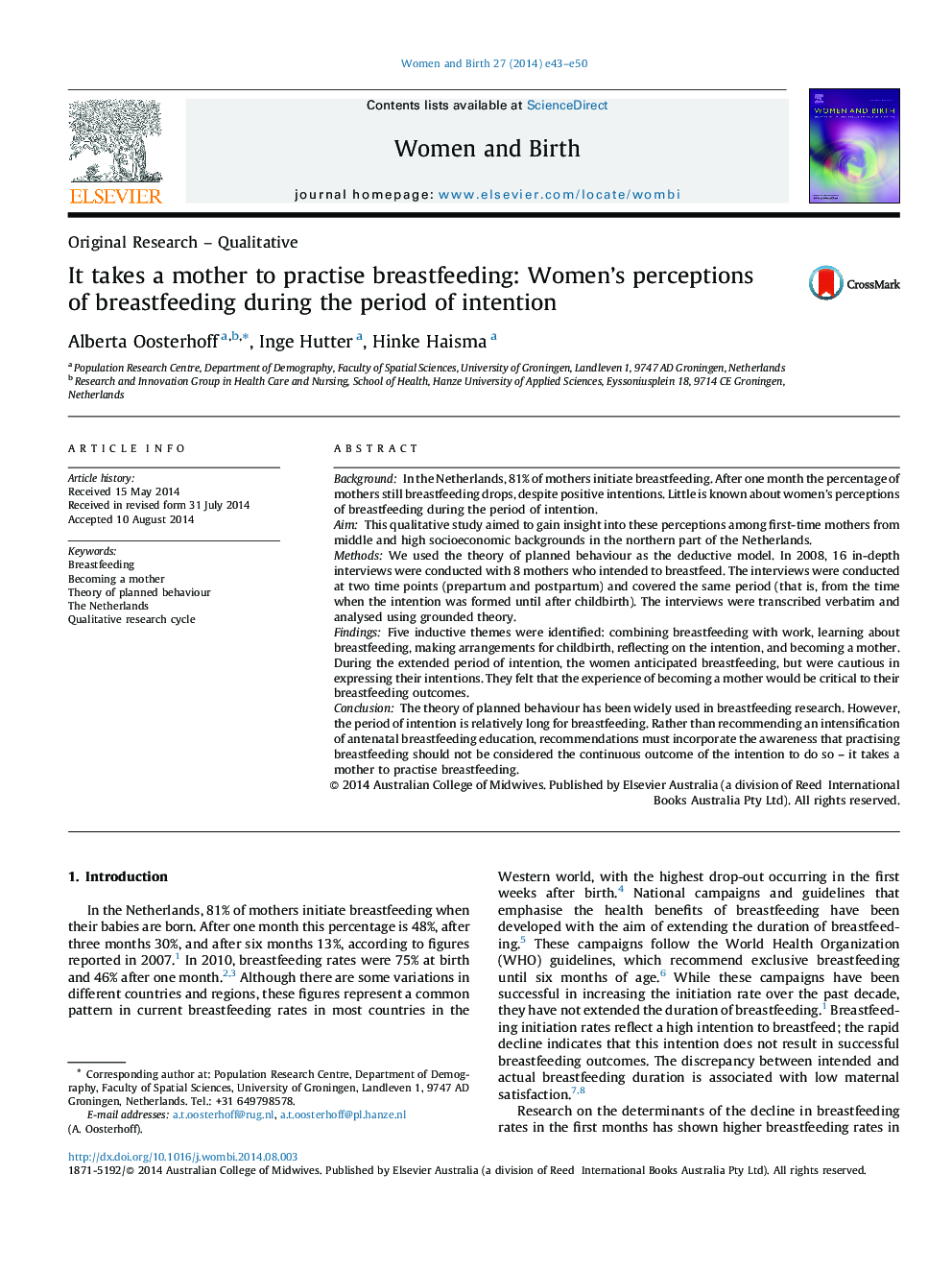| Article ID | Journal | Published Year | Pages | File Type |
|---|---|---|---|---|
| 2636010 | Women and Birth | 2014 | 8 Pages |
BackgroundIn the Netherlands, 81% of mothers initiate breastfeeding. After one month the percentage of mothers still breastfeeding drops, despite positive intentions. Little is known about women's perceptions of breastfeeding during the period of intention.AimThis qualitative study aimed to gain insight into these perceptions among first-time mothers from middle and high socioeconomic backgrounds in the northern part of the Netherlands.MethodsWe used the theory of planned behaviour as the deductive model. In 2008, 16 in-depth interviews were conducted with 8 mothers who intended to breastfeed. The interviews were conducted at two time points (prepartum and postpartum) and covered the same period (that is, from the time when the intention was formed until after childbirth). The interviews were transcribed verbatim and analysed using grounded theory.FindingsFive inductive themes were identified: combining breastfeeding with work, learning about breastfeeding, making arrangements for childbirth, reflecting on the intention, and becoming a mother. During the extended period of intention, the women anticipated breastfeeding, but were cautious in expressing their intentions. They felt that the experience of becoming a mother would be critical to their breastfeeding outcomes.ConclusionThe theory of planned behaviour has been widely used in breastfeeding research. However, the period of intention is relatively long for breastfeeding. Rather than recommending an intensification of antenatal breastfeeding education, recommendations must incorporate the awareness that practising breastfeeding should not be considered the continuous outcome of the intention to do so – it takes a mother to practise breastfeeding.
